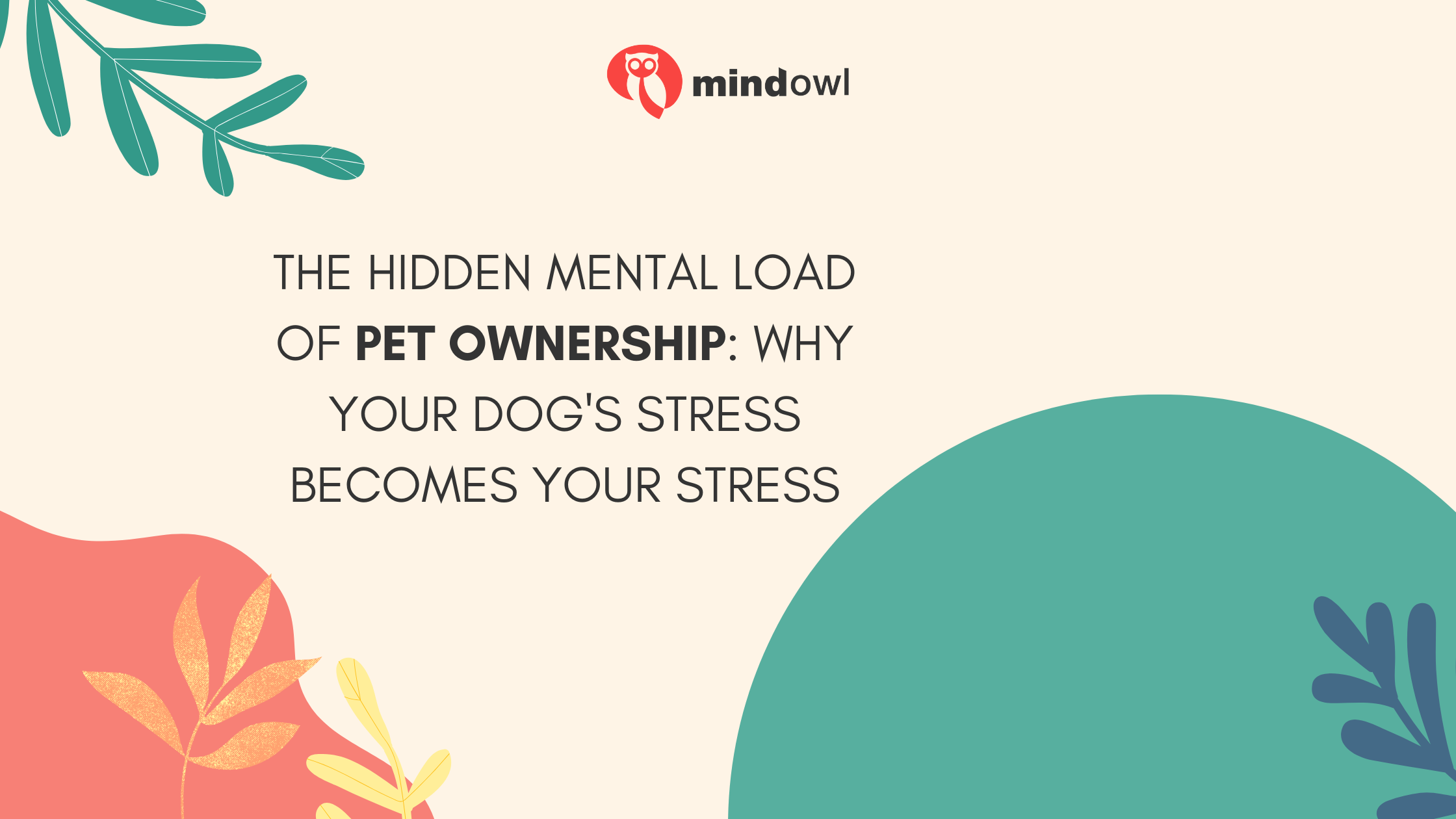If you’ve ever wrestled a terrified cat into a carrier or watched your dog shake uncontrollably in a vet waiting room, you know exactly what I’m talking about. That knot in your stomach. The guilt that sits heavy on your chest. We don’t talk enough about how our pets’ anxiety becomes our own personal mental burden.
Last month I had to take my border collie Max for his annual checkup. The whole morning was a disaster – he sensed something was up the moment I grabbed his leash at the “wrong” time. By the time we got to the clinic, he was panting so hard I thought he might pass out, and honestly, I wasn’t doing much better. That’s when my neighbor mentioned she’d started using a Mobile Vet Near Me service and it completely changed how she manages her pets healthcare. No car rides, no waiting rooms full of barking dogs, just a vet who comes to your home where your pet feels safe.

The Emotional Toll We Don’t Calculate
Here’s what nobody tells you when you get a pet: you’re not just signing up for walks and cuddles. You’re taking on their emotional wellbeing as your responsibility. And when they’re stressed? That cortisol spike doesn’t just stay with them.
Studies show that dogs can smell our stress hormones. They literally absorb our anxiety. But it works both ways – when they’re freaking out, we mirror that energy right back. It’s this endless feedback loop that can turn a simple vet visit into an all-day emotional marathon.
I’ve been practicing mindfulness for years now, and one thing that’s become crystal clear is how much our environment shapes our mental state. We spend so much time creating calm spaces for ourselves – meditation corners, decluttered bedrooms, peaceful morning routines. But then we drag our pets into chaotic, unfamiliar environments and wonder why everyone’s anxiety goes through the roof.
Rethinking “Necessary Stress”
For the longest time, I just accepted that vet visits were supposed to be stressful. It was just part of having a pet, right? Like how going to the dentist makes your palms sweat even when you’re 35 and supposedly a grown adult.
But here’s the thing about mindfulness practice – it teaches you to question these assumptions. Why do we accept unnecessary suffering as “just how things are”?
When my dog needed his next round of vaccines, I decided to try something different. Instead of the usual production of getting him into the car (where he immediately assumes we’re going somewhere terrible), I had the vet come to us.
The difference was night and day. Max was curious, sure, but he wasn’t shaking. He actually wagged his tail when the vet walked in because new people in HIS space meant potential friends, not scary medical procedures. And me? I could actually focus on asking questions about his health instead of just trying to keep him calm.
The Mindful Pet Owner’s Dilemma
Being a mindful pet owner means recognizing that our animals are sentient beings with their own emotional landscapes. They’re not just accessories to our lives – they’re family members whose mental health directly impacts our own.
Think about it. How many times have you skipped or delayed a vet appointment because you couldn’t face the stress? How many small health issues have you let slide because the thought of that car ride made you both miserable? We’re literally compromising their physical health to avoid emotional distress, which creates its own kind of guilt and worry.
This is where I think we need to radically rethink how we approach pet healthcare. Just like we’ve moved towards more holistic, patient-centered human healthcare, maybe it’s time to consider what pet-centered veterinary care actually looks like.
Creating Calm in the Chaos
The principles of mindfulness apply here just as much as they do in our meditation practice. It’s about being present with what is, while also taking skillful action to reduce unnecessary suffering.
Some things I’ve learned:
Your energy sets the tone. If you’re dreading the vet visit for three days before it happens, your pet knows. They might not understand the specifics, but they feel that low-level anxiety humming through your body.
Environment matters more than we think. We wouldn’t expect someone to have a calm therapy session in the middle of a busy shopping mall. Why do we expect our pets to be zen in a clinic full of strange smells, sounds, and other stressed animals?
Prevention feels better than emergency care. When we make healthcare less traumatic, we’re more likely to keep up with regular checkups. This means catching issues early, when they’re easier (and less stressful) to treat.
The Ripple Effect of Reduced Stress
What surprised me most about switching to home vet visits wasn’t just how much calmer Max was. It was how that calmness rippled out into other areas of our life together.
He stopped associating his leash with potential vet visits. Our bond actually got stronger because I wasn’t the person who regularly subjected him to scary experiences. And honestly? I stopped putting off his healthcare because I wasn’t dreading it anymore.
This is what mindfulness is really about – recognizing where we can make choices that reduce suffering for ourselves and others. Sometimes those choices look like meditation cushions and breathing exercises. Sometimes they look like finding healthcare options that honor our pets’ emotional needs alongside their physical ones.
Moving Forward with Compassion
If you’re reading this and feeling guilty about all the stressful vet visits you’ve put your pet through, stop. We’re all doing the best we can with the information and resources we have. The fact that you care about your pet’s emotional wellbeing means you’re already ahead of the curve.
But maybe it’s time to expand our definition of what good pet care looks like. Maybe it includes considering their mental health as seriously as we consider their physical health. Maybe it means questioning whether “that’s just how it’s done” is good enough anymore.
Our pets give us so much – unconditional love, stress relief, a reason to get outside and move our bodies. The least we can do is think creatively about how to make their healthcare as fear-free as possible. Because at the end of the day, their peace of mind is our peace of mind. And isn’t that what this whole mindfulness journey is about?
Our own struggles in life have led us to this path of understanding the human condition. United by a shared curiosity for the mind and what it means to be human, we’ve each walked a journey shaped by personal challenges and a deep interest in helping others grow. Over the last eight years, our work has centred on exploring how meditative practices meet modern approaches to psychological wellbeing.

